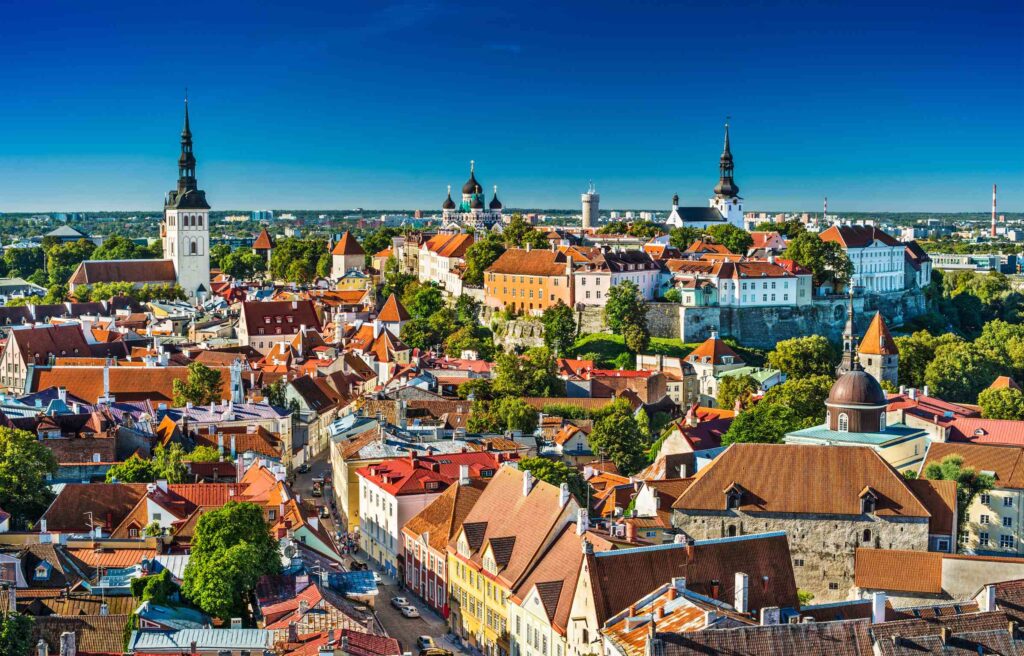As remote work becomes increasingly normalized across industries, one question has dominated search bars, Slack channels, and relocation webinars alike – which country offers the easiest digital nomad visa in Europe? For many remote professionals, this question is not theoretical. It defines where they will pay rent, file taxes, and build a temporary home.
Europe’s appeal is obvious, with factors such as safety, connectivity, and quality of life, but its visa processes remain wildly inconsistent. Some countries offer open doors with minimal paperwork. Others promote openness while quietly burying applicants in bureaucracy.
This investigation breaks down what “easy” really means in 2026, which countries meet that standard, and why a little-known contender may be setting the new benchmark.
What Makes a Digital Nomad Visa “Easy” in Practical Terms?
When digital nomads refer to a visa as “easy,” they are referring to how efficiently a government allows them to become legal residents while continuing to earn income from abroad. In 2026, that ease can first be measured through clear criteria. Specifically, these include application time, income threshold, and the volume of paperwork. Additionally, tax clarity and legal residency status play a significant role.
Ease matters because time matters. A growing number of remote professionals operate on rolling contracts, month-to-month housing, and short-term planning cycles. To begin with, a three-month visa process slows everything down. Besides, requiring notarised paper documents creates barriers. Ultimately, this clashes with how digital nomads live and work.
A March 2025 report found that 68% of applicants cited “unclear application steps” as the reason they abandoned their visa application midway. It is governments offering frictionless legal routes that match the pace of the remote economy, making them contenders for the easiest digital nomad visa in Europe.
The easiest visas are typically approved within 10–30 days, while slower programs may take 8–12 weeks or longer – Nomads Embassy
Albania – A Quiet Revolution in Residency Access
Among the 20+ European countries offering digital nomad visas in 2026, Albania has emerged as the most unexpectedly efficient. While major economies struggle with consular backlogs and outdated systems, Albania has introduced an online-first visa that is fast, affordable, and refreshingly simple.
Officially titled the “Unique Permit for Foreigners Working Online,” the Albanian digital nomad visa launched quietly in late 2022. By early 2026, it had processed over 5,700 applications, with an average approval time of just 17 business days.
The system runs entirely online until arrival, where biometric registration is completed in person.
Applicants need only a passport, proof of income over $800/month, basic health coverage, and proof of accommodation. No apostilles, background checks, or tax IDs are required. In fact, Albania’s simplicity signals a shift in policy. It aims to attract foreign earners without straining the infrastructure. Albania is a leading contender for the easiest digital nomad visa in Europe.
A Canadian freelancer who moved to Tirana in February 2026 shared –
“I submitted my documents from Toronto, got approval in 13 days, and flew in the next week. No embassy visit, no lease, no stress. It’s the fastest I’ve ever been legal anywhere.”

Portugal – Popular, Promising, and Slowed by Its Success
Portugal’s D7 Visa remains the most Googled digital nomad visa in Europe. It offers residency, access to public healthcare, and a path to citizenship. However, by mid-2024, rising demand and staffing shortages had strained the process to the point of recognition.
The average application time now ranges from 60 to 90 days, with a high variance depending on the applicant’s home consulate. Required documents include a Portuguese NIF (tax number), proof of address, six months of bank statements, and evidence of recurring income over €820 per month.
The bottleneck often begins at the consulate level. Appointments are difficult to secure, and visa approvals must be processed through both the Ministry of Foreign Affairs and the SEF (the Immigration and Borders Service). In 2024, more than 38% of D7 applications filed from North America faced delays due to administrative backlog.
Once approved, the benefits are substantial. Additionally, residents get EU travel access and can apply for permanent residency after five years. However, for those seeking speed and simplicity, Portugal’s process feels more like immigration than the easiest digital nomad visa in Europe. Read the complete visa information here.

Related – Working Remotely in Portugal: Remote Workers Heaven
Croatia – Transparent But Not Built for Low Earners
Croatia’s digital nomad visa, introduced in 2021, is among the most structured in the EU. It offers a one-year residency permit to non-EU citizens earning foreign income, and its government portal clearly outlines each requirement.
However, the minimum income in 2026 is €2,540. Importantly, it ranks among the highest in Europe. It alone excludes many early-career freelancers and small agency owners. Especially those from countries with weaker currencies.
To begin with, the application itself is hybrid. Applicants submit documents online and then finalize the process at a Croatian police station. Additionally, a background check from the applicant’s country of origin is mandatory, as is proof of accommodation in Croatia and local health insurance. Besides, read the complete details about the Croatia digital nomad visa.
While Split and Zagreb offer coworking spaces and coastal charm, affordability has become a concern. According to a 2025 cost index from RemoteWork Europe, the average rent for a one-bedroom apartment in Split rose by 21% year-over-year, now sitting above €950/month, which influences how potential applicants assess the easiest digital nomad visa in Europe.

Estonia – The Pioneer That Remains Restrictive
Estonia made history in 2020 by launching the world’s first official digital nomad visa. Since then, it has become a case study in combining innovation with rigidity. Though the program is technologically advanced, it remains inaccessible for many due to its financial gatekeeping.
To qualify, applicants must earn a minimum of €4,500 per month, a figure based on Estonia’s national median income. That puts the program out of reach for 78% of remote workers worldwide, based on 2026 freelancing income data from Payoneer.
Estonian embassies handle the visa process. Though the system is digital, in-person appointments are still needed. Supporting documents include income proof, contracts, tax records, and remote work details, all essential for the easiest digital nomad visa in Europe.
Estonia’s infrastructure is world-class. Tallinn offers 5G connectivity, e-residency integration, and access to startups. However, for many digital workers, the entry cost is too high, making Estonia a leader in theory but not in practice.

Also read – 15 Best Bank Accounts for Digital Nomads & International Travelers
A Quick Glance – Where Applications Are Truly Accessible
When it comes to digital nomad visas, ease matters as much as eligibility. That is why some countries stand out for clarity and efficiency. In contrast, others still rely on outdated or bureaucratic systems.
Here’s a comparison of key criteria for 2026’s top digital nomad visa programs in Europe –
Ease of Application and Access –
- Albania -Online-only, fast approval, low income requirement
- Portugal – Long wait times, complex documentation, moderate income threshold
- Croatia – Clear structure, high income requirement, hybrid process
- Estonia – Digital infrastructure, extremely high income barrier
Application Time (Average) –
- Albania – 2–4 weeks
- Portugal – 60–90 days
- Croatia – 3–6 weeks
- Estonia – 45 days
The data covers applications from Jan to May 2026. Immigration trackers and legal firms gathered it. Overall, it highlights the easiest digital nomad visa in Europe.
Recommended read – How to Leverage Digital Nomad Income for Financial Independence
The Tax Question – Where Are You Paying?
Taxation is the murkiest aspect of most digital nomad visas. While many programs attract workers with promises of “no local tax,” this often hinges on definitions of tax residency and income source.
Albania exempts foreign-sourced income for digital nomads. This applies as long as they stay under 183 days in the country. However, legal analysts anticipate a change ahead. Specifically, the exemption may be revised in 2026 as part of EU alignment reforms. For now, it remains one of the only European programs with no tax registration required during the first year of stay.
Portugal places D7 visa holders under the Non-Habitual Residency regime. Previously, this offered 10 years of tax breaks. However, recent amendments have narrowed those exemptions. In particular, service-based income now faces closer scrutiny. In 2026, some remote workers may be required to pay taxes in Portugal. It depends on residency and the source of income.
Croatia and Estonia both consider digital nomads tax residents after 183 days. Both offer bilateral tax treaties with several non-EU countries, but enforcement varies by local office. For long-term residents, hiring a local tax consultant is essential when considering the easiest digital nomad visa in Europe.
“Rising global mobility means more people are moving, but relocation precision is what ensures a stable start and smooth integration.” — Relo.AI
Start Your Digital Nomad Life in Europe With Us
Europe is opening its doors to remote professionals. Malta approves 78% of digital nomad visa applications, Greece grants around 58%, and Croatia processes approvals in as little as 2 to 4 weeks. The visa is essential, but settling into a new country requires far more: housing, local registration, utilities, and navigating rules that change from city to city. These factors often determine which countries can truly offer the easiest digital nomad visa in Europe.
Relo.AI maintains a 97% visa approval rate and secures housing in an average of 14 days. The process is structured to eliminate delays, prevent costly mistakes, and ensure that every critical step is completed before you arrive.
Relocation is a window of opportunity that closes quickly. The sooner you begin, the more options you will have for housing, location, and community.
Schedule your consultation with Relo.AI today to plan your move with clarity and confidence.
Bottom Line
In 2026, the most accessible digital nomad visa in Europe is characterised by clarity, convenience, and efficiency. Albania’s visa program stands out because it operates seamlessly. For most freelancers and digital workers who earn a modest but steady online income, it offers the most practical solution for legally residing on the continent with minimal hassle.
Portugal remains solid, yet complexity deters quick movers. Meanwhile, Croatia is clear but demands a high income. Estonia, though innovative, stays out of reach for most.
Remote work changed how we live. Governments are still catching up. In this race, countries prioritizing ease will lead digital migration.
Right now, Albania is writing that chapter faster than anyone else.











